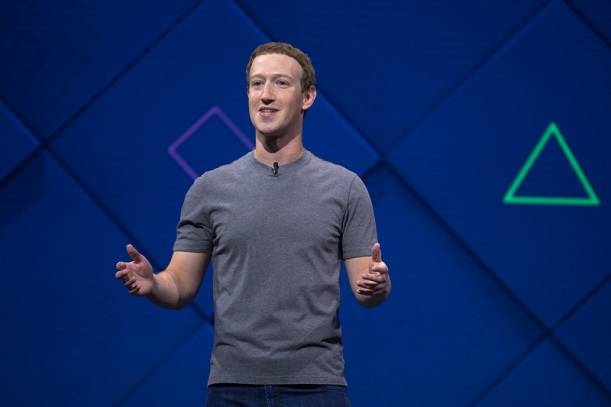Facebook’s Telecom Infrastructure Project, the social network’s typically ambitious attempt to reinvent how cellular networks operate, has been called anything from a welcome shot in the arm for telco innovation to turkeys voting for Christmas. But how does it feel to be an operator inside of it?
Orange most recently grabbed the headlines for its Telecom Track competition – an “X Factor for start-ups” that encouraged fledgling companies working at the operator’s Fab campus in Paris to submit their technologies to Facebook, Orange and venture capitalists for potential funding and inclusion in TIP.
Bertrand Rojat, Deputy VP for Orange’s Technocentre, says the start-ups benefit from the potential for business acceleration. “We help them get contracts with Orange and with other partners. We provide them with technical support for them to improve their solutions,” he tells Mobile Europe.
“We also put them in contact with venture capitals and Facebook, and that’s one area where it is a great help.”
Rojat says Telecom Track benefits Orange in helping them learn from the start-ups, as well as vice versa. He says: “We do not request any degree of exclusivity with the start-ups as we don’t believe it’s an efficient package.
“The simple fact of working with them ahead of time is already an advantage and it’s important for us that what we do is of benefit to the wider ecosystem. If they can make business with other guys as well as with Orange, that’s great.”
He says the attraction of working with Orange is the operator can give them access to money (some €15,000), contacts and visibility. “That’s part of the win-win situation.”
But beyond cosying up to would-be unicorns and basking in the associated PR, there is much more to Orange’s involvement in TIP. Launched in February last year and including other telcos such as Deutsche Telekom, EE and SK Telecom, TIP’s stated aims are to simplify network architecture and deployment.
It spans different kinds of technology, with Orange concentrating on evaluating Voyager, Facebook’s own open optical packet transport solution, defining use cases and sharing findings.
Orange is cagey about the specifics of its involvement, but Philippe Lucas, SVP Strategy, Architecture & Standardisation, is more willing to discuss the generalities. Like other telco members, discussions are held to determine what problems operators are having before work begins on new kinds of projects involving the various vendor members. TIP boasts Nokia among these, but not the other big beasts of Ericsson and Huawei.
Lucas is somewhat droll about why Orange is involved, saying things aren’t moving fast enough in the traditional telecoms industry at times, but adding that he doesn’t want to been seen “as a bad guy” in naming names of who is responsible.
However, a conversation with any vendor would tell you how prepared and excited they are for 5G, how they experiment in new technologies and want to be midwives to the future. So if they at least say they are forward-thinking, how does Lucas explain the disconnect between the vendor and the operator demand?
He says: “The disconnect is in terms of speed. It’s our view at least. Second, the potential disconnect is when you have a few big vendors, you are creating a de facto oligopoly and sometimes that can be a duopoly because not all of the big network vendors are looking at all the areas of network infrastructure. That’s a good business so you would want to keep it the way it is. That’s why there is resistance.”
But Orange, and its fellow TIP operators, is playing a dangerous game. Facebook supremo Mark Zuckerberg is seen as so ambitious an eventual US Presidential bid would not be a surprise. The social network has been nothing but clear about getting as many users as possible. Could TIP be a means of it hoovering up as many learnings about the telecoms industry as it can, before leveraging its substantial billions of dollars of resources into networks of its own?
Kester Mann, Principal Analyst at CCS Insight, agrees, adding: “Facebook would love to gain better understanding of the workings of network operators.”
He says: “For Facebook, it seems like another initiative to boost overall network and infrastructure investment with the end-goal to improve internet access and, ultimately, drive take-up of Facebook services. This is crucial to Facebook’s long-term growth prospects, particularly in emerging markets where networks are less established.
“It will also give it some form of control and influence within the network and potentially allow it access to vital user data.”
But benefits for operators are also clear, according to Mann. He says: “It seems to be all about identifying and establishing technology innovation that could give them the edge in future network deployment, particularly in the path to 5G.”
Could Orange be signing its own death warrant by working so closely with Facebook? Rojat suggests that diagnosis is too fatalistic. He says: “We are in a very complex environment and these days…any company on the planet can be at the same time your partner, your customer and your competitor. It’s important that we play with all of the players…rather than trying to avoid specific players. Aside from that, we have our IP rights and other ways to protect ourselves when required.
“When Facebook does it, they learn from us, but we also learn from them so that’s part of working in today’s environment. And it’s very exciting.”


